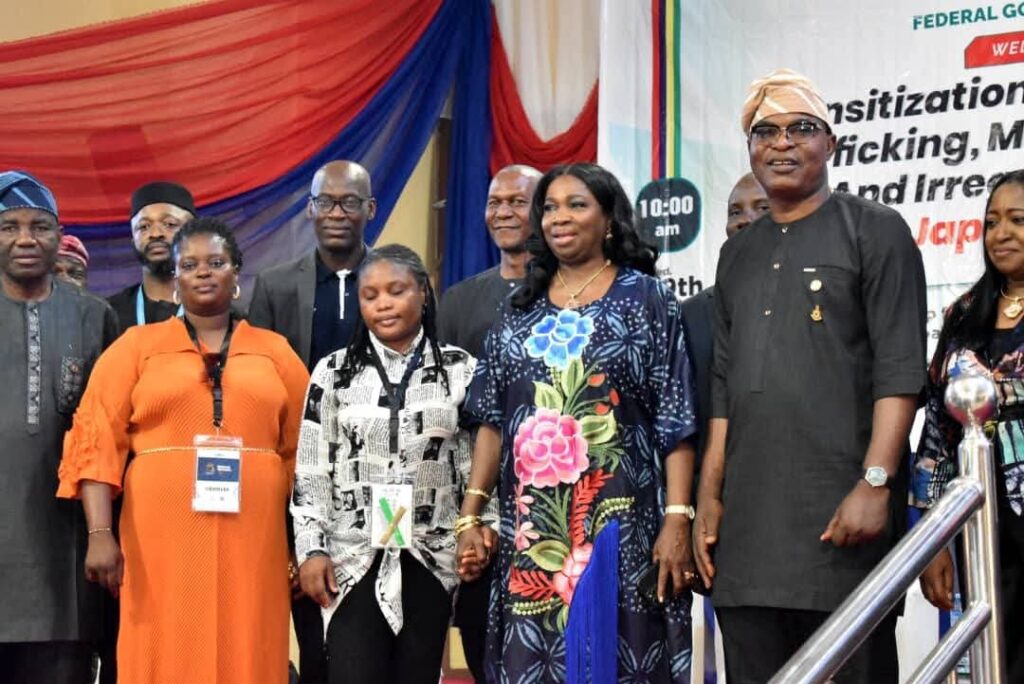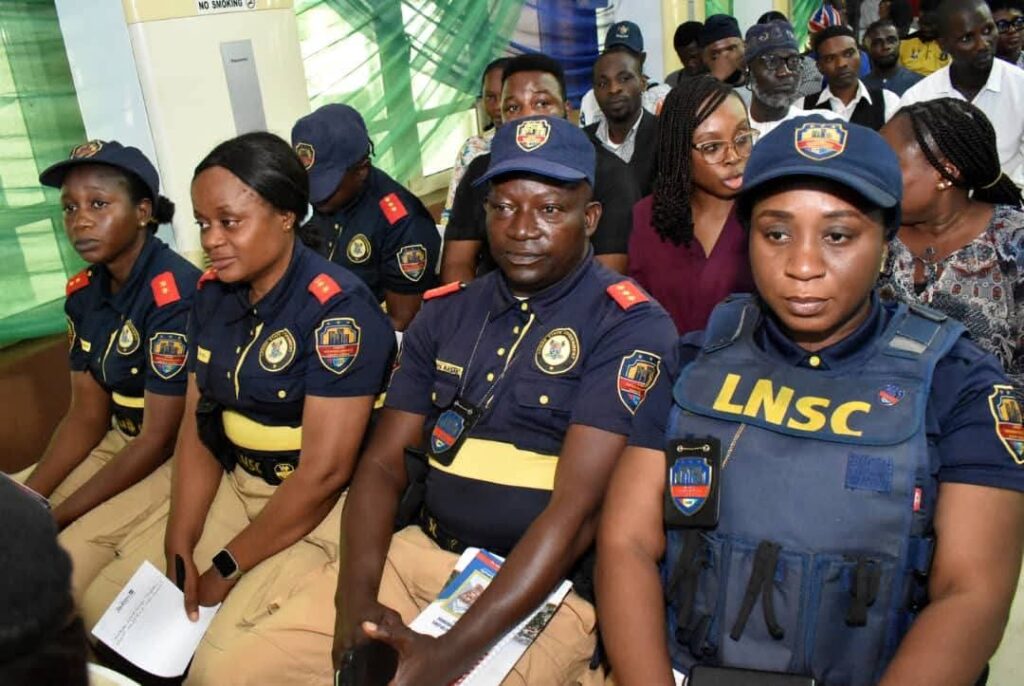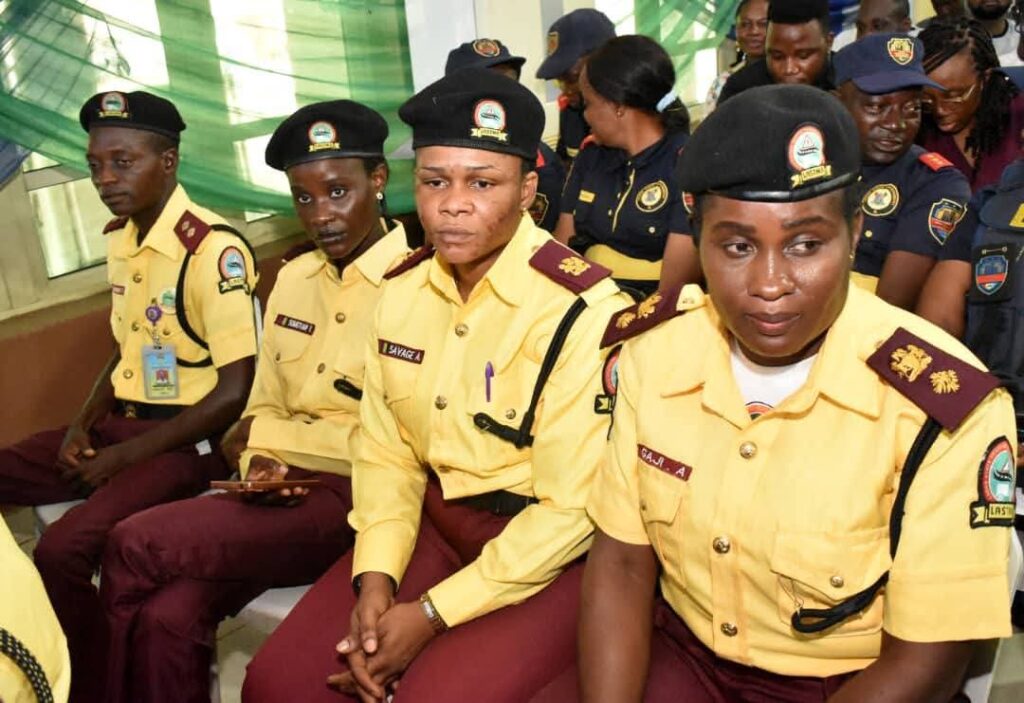In a concerted effort to curb human trafficking, smuggling, and the growing trend of irregular migration popularly known as the “Japa Syndrome,” the Lagos State Government, through the Ministry of Special Duties and Intergovernmental Relations (MoSD&IGR), in collaboration with relevant Federal Government agencies, organised a sensitisation programme for public servants at the Adeyemi-Bero Auditorium, Alausa-Ikeja, themed: “Partnership for Protection: Safeguarding Public Servants Against Trafficking and Unsafe Migration”.
The Chairman/CEO, Nigerians in Diaspora Commission (NIDCOM), Hon.. (Dr.) Abike Dabiri-Erewa lauded the Lagos State Government for taking a proactive stance in addressing human trafficking and unsafe migration through consistent sensitisation and education.
Dabiri-Erewa noted that human trafficking has evolved beyond a local menace to become a global crisis demanding urgent attention. She emphasised that even educated, ambitious youths now fall prey to sophisticated trafficking syndicates disguising false job opportunities abroad.
“Human trafficking is not only a moral crime but a growing global business that feeds on desperation. “The slang ‘Japa’ may sound harmless, but when aspiration turns into desperation, people become vulnerable, and that vulnerability is what traffickers exploit,” Dabiri-Erewa said.
She commended the Lagos State Government for being a trailblazer in state-level advocacy, urging other states to replicate its commitment to intergovernmental coordination and public enlightenment.
She said, “We are not here to demonise ambition or migration. Nigerians have every right to seek greener pastures, but they must do so through regular and lawful channels. Migration should build lives, not destroy them.”
Delivering a goodwill message on behalf of the Speaker, Rt. Hon. (Dr.) Mudashiru Ajayi Obasa, Hon. Olawale Age-Suleiman, reiterated the commitment of the Lagos State House of Assembly to continue enacting people-centred laws that safeguard citizens from exploitation.
He commended the Ministry of Special Duties and Intergovernmental Relations for organising the sensitisation, describing it as a necessary step in strengthening public understanding and institutional response.
“On behalf of the Speaker and all distinguished members of the Lagos State House of Assembly, I extend our deepest appreciation to the Ministry and its partners,” he stated. “Human trafficking is a stain on our collective humanity. Every institution of government must play its role in ending it.”
He encouraged public servants to become ambassadors of awareness in their communities, ensuring the message of safe migration and self-belief spreads across every part of the State.
Delivering the keynote address, the Honourable Commissioner for the Ministry of Special Duties and Intergovernmental Relations, Hon. Gbenga Oyerinde, extended a warm welcome to all participants and stakeholders. He described the sensitisation as a strategic intervention to educate public servants and strengthen institutional capacity against human trafficking.
In his words, “Human trafficking represents a form of modern-day slavery that must be fought with collective resolve”. He emphasised that the “Japa syndrome”, the mass exodus of Nigerians seeking opportunities abroad, has become a growing concern, as many fall victim to deceitful traffickers promising non-existent jobs and better lives overseas.
Oyerinde commended Governor Babajide Olusola Sanwo-Olu for establishing the Lagos State Task Force Against Human Trafficking five years ago, which has continued to strengthen prosecution systems and promote public awareness in partnership with NAPTIP and other international bodies.
He also expressed appreciation to all relevant agencies, including the Nigeria Immigration Service, the National Orientation Agency, and the Nigeria Foreign Missions, for their collaborative efforts in fighting the menace.
He urged all participants to act as ambassadors of enlightenment, taking the message beyond the auditorium and into their communities. “Together, we can build a Lagos where no dream is trafficked and no ambition is enslaved,” he said.
The sensitisation programme reflected the Lagos State Government’s proactive commitment to intergovernmental collaboration and citizen protection. Stakeholders agreed that beyond enforcement and sustained advocacy, education remains the most effective tool in addressing the challenges of human trafficking and irregular migration.
The technical panel session featured a robust exchange of insights from representatives of key government agencies and international organisations, each addressing critical aspects of human trafficking, migrant smuggling, and irregular migration.
See more pictures:



